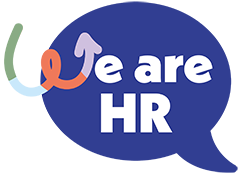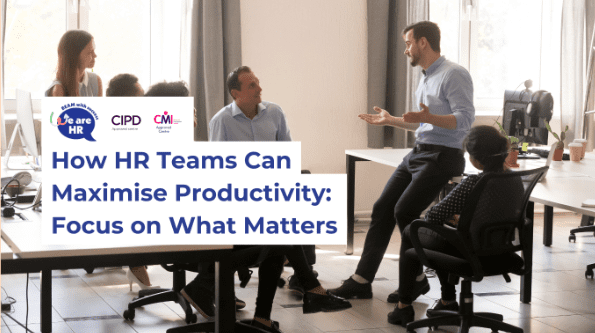Table Of Contents
- How HR Teams Can Maximise Productivity: Focus on What Matters
- Introduction
- Understanding HR’s Current Time Management
- The Impact of Wasted Time on HR Teams
- Strategies to Eliminate Time-Wasting Activities
- Prioritising Impactful HR Initiatives
- Leveraging Technology for Efficiency
- Developing a Proactive HR Mindset
- Conclusion: Building a Forward-Thinking HR Strategy
Introduction
Human Resources (HR) is the backbone of any successful organisation. Beyond handling payroll and recruitment, HR teams are essential in fostering a positive work culture and aligning the workforce with company goals. Yet, too often, HR professionals are bogged down by routine, low-value tasks that take their focus away from meaningful initiatives.
To create a thriving workforce, HR teams must strategically shift their time toward activities that drive growth and engagement. This requires recognising inefficiencies, embracing automation, and investing in strategies that empower employees and managers alike.
This guide explores common inefficiencies in HR workflows and offers practical solutions to help HR professionals prioritise the tasks that truly matter.
Understanding HR’s Current Time Management
Common Time-Wasting Activities
HR teams frequently find themselves tied up in unproductive tasks that could easily be improved or automated. These include:
- Managing inconsistent workforce data – Outdated or incomplete records create confusion and hinder decision-making.
- Relying on manual updates – Updating employee records, payroll data, and performance logs manually consumes unnecessary time.
- Waiting for approvals – Chasing signatures and confirmations often slows down essential processes.
- Tracking candidate statuses – Manually following up with job applicants leads to duplicated efforts.
- Excessive back-and-forth in communication – Chasing unanswered emails or unresolved enquiries wastes valuable hours.
- Last-minute recruitment decisions – Reactive hiring processes put unnecessary pressure on HR teams and managers.
These inefficient processes not only consume valuable time but also prevent HR teams from focusing on proactive, strategic work that could benefit the entire organisation.
High-Value Tasks HR Should Prioritise
Instead of focusing on repetitive administrative duties, HR teams should concentrate on activities that create lasting value for employees and the organisation. These include:
- Strategic Workforce Planning – Aligning staffing strategies with long-term business goals.
- Employee Development Programs – Building mentorship opportunities, leadership training, and skills development to foster growth.
- Cross-Department Collaboration – Encouraging team-based solutions that promote engagement and innovation.
- Retention Strategies – Creating initiatives that improve employee satisfaction and reduce turnover.
- Company Culture Building – Strengthening diversity, inclusion, and values that reflect company ethos.
- High-Performance Team Development – Designing pathways for employees to excel and achieve results.
- Proactive Recruitment Strategies – Investing in tools and techniques that support faster, more effective hiring.
The Impact of Wasted Time on HR Teams
When HR teams spend too much time on mundane tasks, the ripple effects are felt throughout the organisation. Employees may struggle to get timely support, leaders may experience delays in making informed decisions, and HR professionals themselves may feel overwhelmed and disengaged.
This inefficiency also contributes to lower morale within the HR team, increasing stress and burnout. Over time, these challenges can compromise the employee experience, making it harder to attract and retain top talent.
By recognising these inefficiencies, HR leaders can refocus their energy on strategic initiatives that build stronger teams, improve productivity, and drive better business outcomes.
Strategies to Eliminate Time-Wasting Activities
1. Automate Repetitive Tasks
HR technology has revolutionised the way teams manage data, payroll, and compliance. By adopting tools that automate tasks like record-keeping, leave tracking, and payroll processing, HR teams can save valuable time while ensuring accuracy and compliance.
2. Implement Centralised Systems
Centralising data with robust HR management systems (HRMS) enables HR teams to efficiently manage records, monitor performance metrics, and track employee milestones, all from one platform. This streamlined approach prevents duplicated efforts and provides managers with better access to data.
3. Streamline Communication Channels
Instead of relying solely on emails for communication, HR teams can implement internal collaboration platforms like Slack or Microsoft Teams to facilitate quicker updates and ensure better team alignment.
Encouraging structured check-ins and task-tracking tools also improves transparency and keeps projects moving forward efficiently.
Prioritising Impactful HR Initiatives
1. Strategic Workforce Planning s
A proactive workforce plan ensures the organisation is prepared for growth, transitions, and changing market conditions. HR leaders should regularly evaluate headcount needs, succession plans, and skills gaps to stay ahead.
2. Employee Growth and Development
Investing in employee development strengthens morale, improves engagement, and enhances long-term retention. Mentorship programmes, internal learning platforms, and cross-training initiatives create a culture of growth.
3. Building a Positive Workplace Culture
Promoting an inclusive, respectful, and empowering environment encourages teamwork and innovation. HR should focus on creating cultural initiatives that foster trust, belonging, and employee well-being.
Leveraging Technology for Efficiency
Modern HR platforms empower teams to be more strategic by reducing administrative burdens. Tools like:
- Lever – For efficient talent acquisition and recruitment.
- CultureAmp – For tracking employee engagement and gathering valuable feedback.
- 15Five – For performance management and fostering continuous improvement.
By embracing these platforms, HR teams can redirect their focus to initiatives that improve workplace dynamics and drive long-term success.
Developing a Proactive HR Mindset
To fully embrace a forward-thinking strategy, HR teams must adopt a proactive mindset that values preparation over reaction. This means anticipating hiring needs, staying informed about workforce trends, and building long-term plans for employee development.
Encouraging HR professionals to take ownership of their role as strategic partners helps align HR efforts with company objectives, ensuring HR becomes a driving force for organisational growth.
Conclusion: Building a Forward-Thinking HR Strategy
For HR teams to maximise their potential, they must shift from repetitive administrative duties to impactful initiatives that shape the workforce and enhance employee experience. By embracing automation, improving communication, and nurturing a positive company culture, HR professionals can create meaningful change.
By investing in proactive planning and leveraging modern HR tools, organisations empower their HR teams to become invaluable partners in building a successful, sustainable future.
If you are an experienced HR professional or just starting your journey, check out CIPD qualifications here to develop the skills and knowledge you need to excel.


